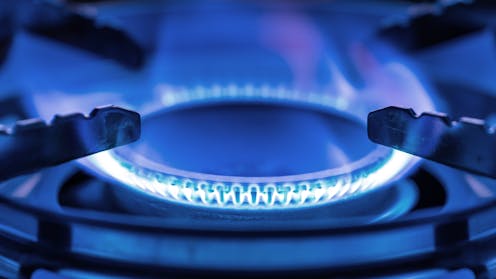PR firms are spreading climate misinformation on behalf of fossil fuel companies. Could Australia stop them?
- Written by The Conversation

Have you heard offshore windfarms kill whales? (They don’t.) Or that electric vehicles catch fire more often than petrol cars? (It’s the opposite.) Perhaps you’ve heard “natural” gas is clean? (It can be worse than coal.)
This is what climate misinformation looks like. These claims are common, influential and damaging. They’re often spread for a reason: to slow the uptake of clean alternatives to fossil fuels. Unfortunately, they are shaping public opinion.
This week, a Senate inquiry is hearing testimony from officials, climate scientists and researchers about the scale of the problem and its effects on Australian politics. Policymakers are also hearing about the main culprits: oil, gas and coal companies, as well as key enablers such as public relations firms. I was one of the experts called to give evidence.
My research has followed the money trail between the fossil fuel industry and public relations firms. As a co-editor on a forthcoming book on climate obstruction, I can say that large PR firms have too often put their commercial interests, and the interests of fossil fuel giants, ahead of those of the public. My colleagues and I made this clear in our submission to the inquiry.
What’s the point of misinformation?
In the climate domain, researchers typically use the word “misinformation” to refer to any falsehoods about climate change. They can be spread innocuously or through a deliberate campaign.
Misinformation matters because it can influence attitudes and behaviours of both the public and political elites. Tackling climate change effectively requires public support for clean energy and many other changes. Misinformation erodes this support for climate science and climate policies. The more often false information is repeated, the more likely we are to think of it as true.
These campaigns can inflate the sense of opposition to climate action and give policymakers a false sense of how widespread support for climate action is.
Australian policymakers have previously moved to ban or restrict advertising for products known to be dangerous. Cigarette advertising is banned because cigarettes cause cancer, and now there’s a growing push to ban fossil fuel advertising due to the damage done by emissions.
How do PR firms spread climate misinformation?
PR and advertising firms have long been paid to craft political campaigns for oil and gas companies often to block or slow climate policies.
These campaigns involve more than simply running a few television ads for a corporate client. PR firms often run polling, focus groups and media and social media campaigns. Some undertake astroturfing – creating fake community groups to give the impression of widespread support or opposition for an issue or policy.
The largest of these campaigns have been documented in the United States. To gauge how much the oil and gas industry pours into PR firms to run political campaigns, my colleague and I analysed a decade’s worth of the tax records of industry groups active on climate change issues in the US. We found oil and gas lobby groups spent A$1.5 billion on public relations and advertising between 2008 and 2018.
What did this money buy? Here’s one example. Ahead of the US presidential election in 2012, a group named “Energy Citizens” ran an ad campaign titled “I’m an energy voter” across newspapers, television and online, featuring ordinary Americans saying “I vote … for American domestic energy”.
Energy Citizens appeared to be a grassroots campaign. But in reality, it was astroturfing. The oil and gas industry had contracted the large PR firm Edelman to run the campaign. The people in the ads were hired actors. Between 2011 and 2012, our data shows the largest oil and gas industry group, the American Petroleum Institute, paid Edelman A$180 million in contracts for public relations and advertising.
Climate obstruction is common in Australia
This is not a US-specific problem. PR firms have a long history of helping obstruct climate policy in Australia, too. The effective coal industry campaign against an emissions trading scheme in Australia between 2008 and 2010 was created by PR firms and political consultants.
Australia’s poor disclosure practices mean we don’t know how much money industry groups are paying PR companies in Australia.
But we do know PR companies are creating misinformation campaigns and astroturfing groups such as Australians for Natural Gas, which describes itself as a non-government organisation. It was set up by the chief executive of gas company Tamboran Resources, with help from PR firm Freshwater Strategy, according to media reports.
Many PR firms in Australia have worked for the fossil fuel industry, as documented by climate communications charity Comms Declare. In response, some PR professionals are pushing to cut ties with the industry.
Misinformation is dangerous
The problem has been recognised at the highest levels. Last year, UN Secretary-General António Guterres called on PR firms to “stop acting as enablers to planetary destruction”.
Last month, the Australian government released its long-awaited report on the very real and escalating dangers posed by climate change.
This week’s Senate hearings could not be more timely. Climate misinformation is spreading wildly – aided by public relations firms – even as climate change worsens and the risks mount. The question now is, how will policymakers respond?







